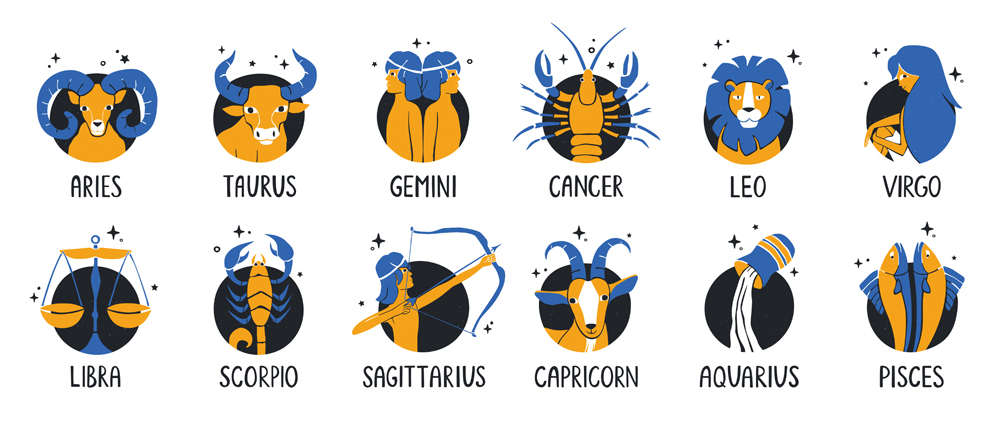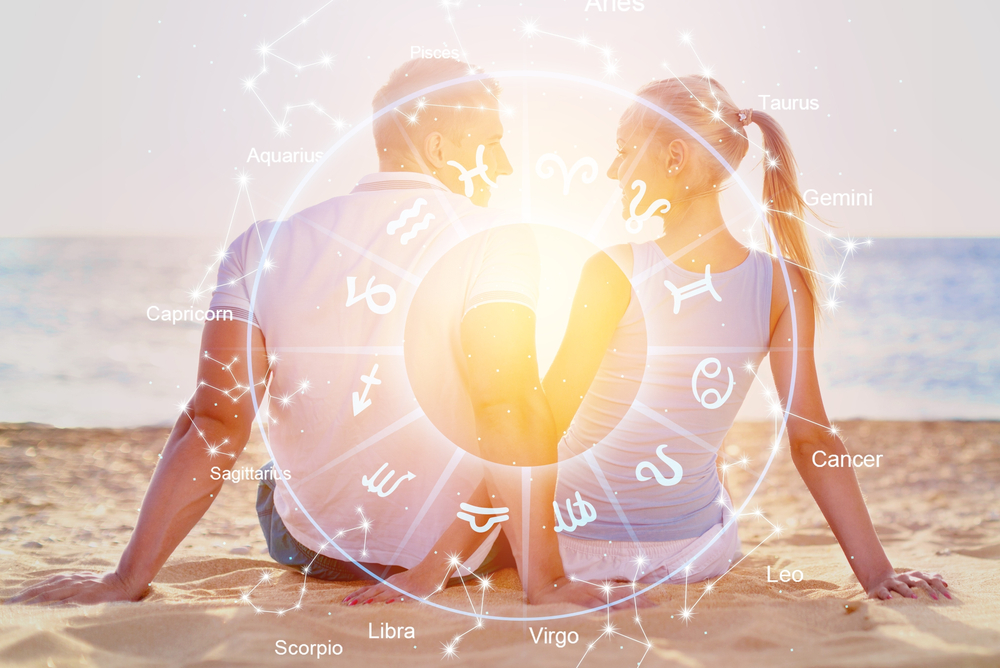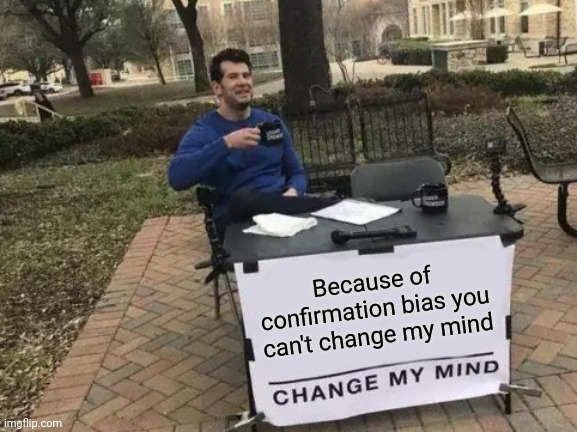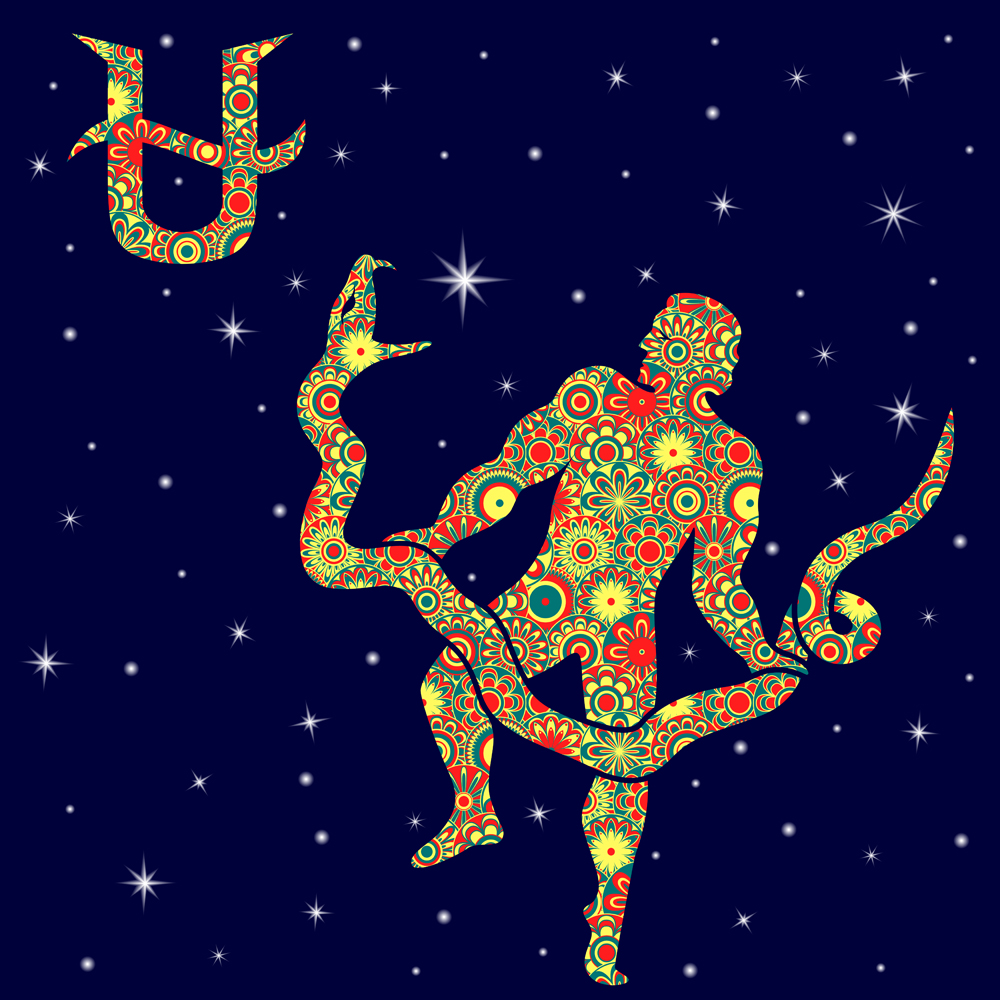Table of Contents (click to expand)
People enjoy reading horoscopes for a slew of reasons, from confirming our biases to giving us an external factor to blame when things go wrong (or right).
“What’s your zodiac sign?” is a great way to break the ice in social situations, but it only goes so far. We all know that astrology has no concrete scientific evidence, yet 15% of Americans still read daily horoscopes. Despite knowing that you being a Taurus is not a free pass for acting stubborn at all times, we still love describing our personality that way.
Now, what if I tell you that our present zodiac signs are off by a month and that there is a 13th zodiac sign!
In spite of this, why are we tempted to read and define ourselves through horoscopes?
What Is Astrology?

Thousands upon thousands of years ago, humans started observing the sky, either out of curiosity and a need to understand the world or too much free time, we’ll never know. They observed the movements of the sun, stars and planets and noticed a cyclical pattern. Although these observations did offer an explanation for seasons and tides, it also led to the birth of predicting a person’s future based on planetary movements.
Astrology is the study of the movement of these celestial bodies and the subsequent association with the personality and future behavior of individuals.
The early Greeks believed the sky to be a giant dome covering the planet, and named it the celestial sphere. The sun was believed to move across this path, which was ecliptic. The other celestial bodies also moved around this path.
A zodiac sign refers to the part of the sky that the sun travelled through when a person was born. The zodiac signs are divided into twelve sections that each correspond to a particular month of the year.

Also Read: What’s The Difference Between Astronomy And Astrology?
What Makes People Believe In Horoscopes?
If I ask you about your zodiac sign, I’m sure you are at least aware of it. You are also aware of the fact that predictions based on your zodiac sign rest on a very shaky scientific table. Even so, is still very intriguing to read these charts and predict your personality, future relationships and careers. Why?
Barnum Effect
The Barnum effect is the belief in accepting generic statements regarding behavior and personality as personal inferences about oneself. For example, you read the statement, “At times you are introverted and keep to yourself.” and think to yourself, “That is so me!”
The keyword contributing to the Barnum effect is ‘at times’. The fact is that all human beings have some level of extroverted and introverted tendencies. That general statement that you (and everyone else) may feel seems to fit well with your personality. We all like to be quiet sometimes!
People who have an external locus of control and lower self-esteem are more susceptible to the Barnum effect. People with an external locus of control more readily hand over control of their life to external factors like luck, fate and the environment. This is the perfect breeding ground for astrology, as it literally says that the ‘fault is in our stars.’

Priming
Priming is a phenomenon of a previous stimulus impacting the perception of a subsequent stimuli. Once you are assigned a certain trait about yourself, you will increasingly associate yourself with that trait.
Say that your horoscope predicts that today is going to be a terrible day for you. Now, the moment you forget your keys inside the house, you’ve already drawn the link to the horoscope’s lousy prediction. Any minor inconvenience ahead will just affirm the prediction.
Confirmation Bias
We have seen how gullible we can be towards accepting predictions about our life, but does that mean we accept every piece of information with the same openness? No.
According to confirmation bias, one is more likely to accept predictions that already align with one’s self-concept. Take for instance that you feel that you are a very honest person. Now, if there are two predictions made: you are a composed person and you appreciate honesty, you are more likely to agree with the second statement than the first, because it confirms the opinion you hold about yourself.

Body Language
This has less to do with your cognitive biases and more to do with your body language, or rather, how an astrologer reads your body language.
Astrologers carefully observe their clients’ facial expressions and body language while offering their predictions. Non-verbal responses help them continue with their guidance, depending on whether the client seems happy about what is being said.
13th Zodiac Sign And New Planets
Even if we accept the planetary movements and their associations with peoples’ lives, there is another interesting thing to note. Astrological predictions were made long before newer planets were discovered. Even today, predictions are made only up to the planet Saturn.

Another interesting thing to note about the zodiac signs is that there is a 13th sign that is rarely considered. Earth wobbles slowly on its axis, meaning that the relative positions of the zodiac signs have shifted by nearly a month.
The present recalculation accounts for a 13th zodiac sign, Ophiuchus, which you will rarely find in your horoscope charts. While astronomy and astrology do have their differences, Ophiuchus may also be an intentional omission.
At least now we know why we indulge in this guilty pleasure of reading horoscopes… it is not an easy thing to overcome cognitive biases!
Also Read: The Fault In Our Stars (Signs): Is The Zodiac Wrong?
How well do you understand the article above!

